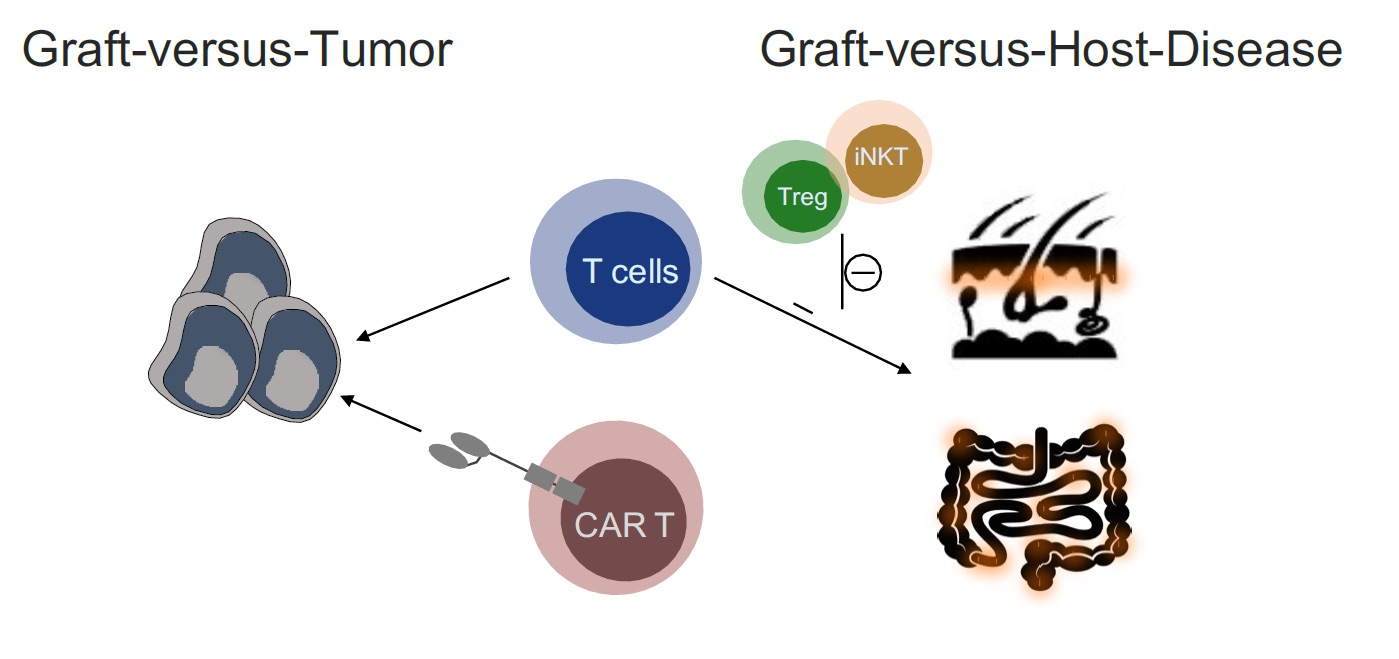[1054] Cellular therapy and transplantation

Our research group studies immunological mechanisms underlying the efficacy and the toxicities of adoptive cell therapies including allogeneic hematopoietic stem cell transplantation (HSCT) and chimeric antigen receptor (CAR) T cells.
1. Allogeneic hematopoietic stem cell transplantation (HSCT)
Allogeneic hematopoietic cell transplantation (HSCT) is a well-established therapy for a broad range of hematologic malignancies thanks to its Graft-versus-Tumor (GvT) effect, but unfortunately, it is still associated with significant morbidity and mortality related to graft versus host disease (GvHD). In our lab, we analyse preclinical models of cancer and GvHD as well as clinical samples from our patient cohort to understand immunological processes leading to cancer relapse and GvHD after allogeneic HSCT. We aim to identify biomarkers to predict post-transplant complications to develop strategies to identify them before they occur. Moreover we investigate therapeutic approaches to prevent GvHD using immunoregulatory cells, including regulatory T cells (Treg) and invariant natural killer T (iNKT) cells.
2. Chimeric antigen receptor (CAR) T cells
Chimeric antigen receptor (CAR) T cells, T lymphocytes engineered to express a receptor directly recognizing a surface antigen, have revolutionised the treatment of refractory B-cell malignancies. However, the majority of patients receiving CAR T cells will unfortunately still progress or relapse after therapy. Our goal is to understand and overcome cancer resistance to CAR T cells using combination therapies. Moreover, we work on the development of new allogeneic CAR-based cellular therapies for B-cell malignancies as well as for new indications including T-cell and myeloid malignancies.
